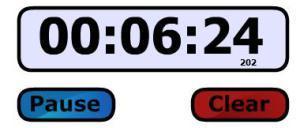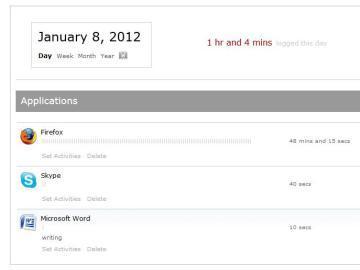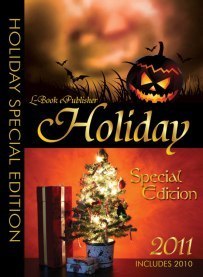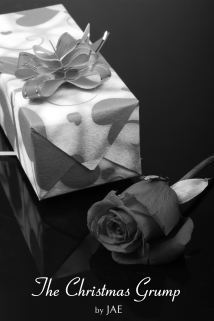Jae's Blog, page 48
June 11, 2012
What’s the difference between a beta reader and a critique partner?
Beta reading is a subject near and dear to my heart. Not only are beta readers an important part of my own writing process, but I also beta read for several authors, so I decided to do a series of blog posts on beta readers and beta reading.
Let me start by explaining what “beta reader” means to me and what the difference is between a beta reader and a critique partner. Every writer has his or her own terms for their “creative staff.” Personally, I make the following distinction:
A critique partner is a fellow writer with whom you trade chapters or whole stories. The crit partner (beta) reads and critiques your story while you comment your partner’s (not necessarily at the same time, though). Critique partners give detailed feedback on not just plot and characterization, but on the craft aspects of writing—lack of conflict, violations of POV, etc.
Beta readers don’t need to be writers. A well-read reader’s feedback can be just as valuable. They give feedback on their subjective impressions: Did they like the characters? Did the plot capture and keep their attention? Was the end satisfying? What worked and what didn’t? Some beta readers are good with spelling and grammar and can point out mistakes in that area too. If the beta reader is also a writer or someone who beta reads a lot, you’ll also get the same kind of detailed feedback that you get from critique partners, but the beta reading just goes in one direction—they beta read for you, but you don’t beta read for them.
I prefer my beta readers and critique partners to read the story chapter-wise and provide me with feedback while I’m still working on the novel. Most of them do two or more read-throughs of the novel. Some read as much as six different versions of each chapter. So after I finish the final draft of a novel, I need a fresh pair of eyes.
That’s where test readers come in. Test readers are readers who have never seen the manuscript before. They are not expected to be writers or to give craft advice (though that is always welcome, of course). Some give just their overall impression about what worked and what didn’t, while others go into more detail. At this point, the manuscript should be pretty “clean,” so I mostly need the test readers to tell me if the changes I made in the last draft work and the story reads smoothly.
Right now, I work with a team of two beta readers, three critique partners, and about five test readers, but it varies a bit with every novel.
One more distinction: Some writers would benefit more from a mentor than from a beta reader. Every once in a while, I agree to beta read for a writer and after reading just a few sentences of her or his work, I realize that I’m dealing with someone who is just starting out as a writer and makes a lot of the typical beginner’s mistakes. If I went ahead and beta read their manuscript, I would overwhelm them with a sea of red corrections and comments. So instead, I offer them a mentorship and explain the basics of plot, dialogue, point of view, pacing, and everything else they need to know. Based on my explanations, they revise their manuscript and then we start the beta-reading process.
How about you? What does your “creative staff” look like?
Filed under: writing tips Tagged: beta reader, critique partner, test reader, writing mentor








May 30, 2012
Interview with a new publisher
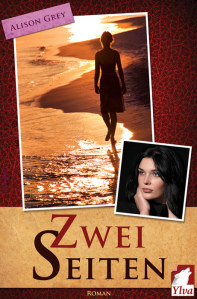 A friend of mine founded a publishing company this year, and it was very interesting to witness every step along the way, e.g., the creation of the website, the first e-books being sold, etc. Since Ylva Publishing is a German publisher, I learned some interesting differences between the German and the US publishing industry.
A friend of mine founded a publishing company this year, and it was very interesting to witness every step along the way, e.g., the creation of the website, the first e-books being sold, etc. Since Ylva Publishing is a German publisher, I learned some interesting differences between the German and the US publishing industry.
Here’s the link to the publisher’s website. Right now, they are selling their first two e-books (a novel and a novella) through Amazon.
Continue reading for an interview that I did with the publisher. Don’t worry, I translated the interview for you. 
Why did you decide to start your own publishing house?
At first, I planned to self-publish my stories. Then I talked to a few fellow authors, who didn’t always have the best experiences with their publishers. That brought up the question: Why don’t authors team up? Why not establish a publishing house that focuses on cooperation and gives authors more input and control?
Unfortunately, I didn’t have the time to get one of my own stories ready for publication, but I hope that will change in the next two or three months.
Why
 did you pick “Ylva” as a name for the publishing company and what does it mean?
did you pick “Ylva” as a name for the publishing company and what does it mean?
It wasn’t easy to find a good, catchy name. I wanted a name with meaning. Ylva is an old Swedish name and means “female wolf.” Since I love wolves and their personality traits and since I have a friend whose name is Ylva, I asked her if I could use the name for my publishing company. She was honored.
We have a beautiful logo that reflects the name.
What types of books does Ylva Publishing publish? Just lesbian fiction written by lesbian authors?
We publish fiction. Not just lesbian fiction, but literature from women for women.
The focus is on romances, which nowadays sell best and will allow us to also publish fantasy and historical fiction.
I would also welcome English manuscripts, and we’re open to translating English books and publishing it in German. Our novella, “Richtig verbunden,” will be translated into English too.
Most importantly, we want to publish just good, believable books, not kitschy “chick lit.”
 Is there a length restriction for the books you publish?
Is there a length restriction for the books you publish?
In addition to novels, we publish novellas and short stories of 5,000 words or more. When it comes to maximum length, it depends on the manuscript. Length alone doesn’t make a book good or bad. If a book has 200,000 words without any dragging parts, I would consider publishing it, possibly in two volumes.
What makes a novel good?
A good book contains a story that I haven’t read a thousand times before. Oftentimes, plots are repeated over and over, especially in romances, just with different names.
“Zwei Seiten” and “Richtig verbunden” have original plots that I haven’t read before.
Another problem is that sometimes, plots are unrealistic and the characters are too attractive, too intelligent, too perfect. I would be interested in a story in which two older women fall in love. Books that show normal people.
What makes Ylva Publishing different from other publishers?
What I want is a “We,” not an “I.” We want authors who identify with the publishing house, who are involved in every step of publishing, beyond just delivering the manuscript. At Ylva Publishing, authors have input on choosing the cover for their books, marketing options, and planning the locations for readings. I’m always open to suggestions and ideas.
What can readers expect from Ylva Publishing?
The blessing and curse of e-books is that nowadays, anyone can publish an e-book (through Amazon). Unfortunately, that goes at expense of quality. At Ylva Publishing, we want that to be different. Editing, layout, formatting, and cover design need to keep to the same high standard as with paperbacks. Readers who pay for e-books have a right to high quality without paying an arm and a leg for an e-book. I want to master this balancing act.
For print editions, we won’t use cheap methods of printing and binding that will cause the book to fall apart after reading it twice. Our covers—for e-books and paperbacks—are created by a professional graphic designer.
What can authors expect from Ylva Publishing?
Our authors receive fair royalties—for e-books 20% (of list price minus sales tax), for paperbacks between 5 to 10%, depending on the number of books sold.
Authors also receive at least five free copies of their books.
Ylva Publishing provides the author with information about the number of books already sold and keeps every step of the publishing process as transparent as possible.
What advice can you give authors who want to publish with Ylva Publishing?
I suggest giving the manuscript to two or three people with good language skills before you submit it to us. As with job applications, no publisher will accept a manuscript if there are ten spelling or grammar mistakes on the first page.
Authors should also realize that the true work—the editing—starts after the manuscript has been accepted by the publisher.
What are the difficulties of being a small press?
The German bureaucracy is complicated. There are a lot of details you have to take into consideration while founding a publishing company. If you really do it the right way, it’s not as easy as some people say. My experience as a secretary and library assistant come in handy.
You also need a sufficient start-up capital if you want to run a publishing house in a professional way. Advertising is expensive.
The biggest problem at the moment is finding ways to make the publishing company more well-known and to find new authors and manuscripts that meet our quality standards. It will probably take two years for Ylva Publishing to become more well-known and for people to realize that we’re here to stay.
All in all, everything has gone better than expected. I wasn’t sure how well e-books would sell in Germany. It was very encouraging to see that we recouped the costs for the e-books within seven weeks.
What’s most rewarding about being a publisher?
The feeling of having created something, like a carpenter who creates a beautiful cabinet. As an author, I know how it feels to finish a novel—to have created a world and characters and to know that people are reading it.
Having published the first, second, … book as a publisher feels the same way. That’s why I like working closely with authors. Authors and publishers share that feeling. The author writes the book, and I distribute it. Author and publisher work together to “give birth” to a novel.
How do you think publishing in Germany differs from publishing in the US?
The legal situation for e-books is clearer in the US than in Germany. In Germany, e-books fall into a gray area. On the one hand, they’re treated like paperbacks and therefore have to keep to a fixed book price. On the other hand, they’re treated as electronic media, so instead of the reduced sales tax of 7% for print books, readers have to pay 19% sales tax for e-books.
That’s why German publishers are less flexible in the pricing of e-books. Due to the higher sales tax, they can’t afford to sell e-books much cheaper, even though the cheaper prices are part of what makes e-books interesting for readers.
At the moment, e-books are taxed at 3% if you sell them through Amazon, because Amazon’s headquarters is in Luxembourg, but it’s not clear yet how things will be handled in the future.
Another difference is the higher interconnectivity and communication between authors and publishers in the US. There are conferences, events, and awards for lesbian fiction. I would like to see more of that in Germany. In the German-speaking region, I don’t know of any forum or mailing list [for authors of lesbian fiction]. That makes it harder to find good authors.
Is publishing in the US more profitable for authors than publishing in Germany?
That’s not necessarily true. Some German lesbian novels sell 3,000 to 4,000 copies. That’s surprisingly good. Sales figures aren’t much lower than in the US.
Where can readers find/buy books from Ylva Publishing?
At the moment, just through Amazon in the Kindle/Mobi format, but after mid-June, you can also get our books as epub or pdf through the e-book wholesaler Ciando, who supplies e-books to Weltbild, Thalia, buecher.de, Jokers, buch.de, Hugendubel, bol.de, Lehmanns, Dussmann – das KulturKaufhaus, Pageplace, Schweitzer, and many others.
Most profitable for the publisher is it if readers buy their books directly through the link on our website.
How does Ylva Publishing promote and market their books?
Large-scale advertising is only worth the effort once we have a longer backlist [= list of older books available from a publisher]. Right now, I’m trying to make Ylva Publishing more well-known through websites like Konnys Lesbenseiten. Soon, we’ll have our own Facebook site. Next month, an article about the publishing company will be published in the Lesbenring-Info.
In the future, I will distribute flyers on CSDs [Christopher Street Day, an annual European LGBT celebration and demonstration similar to Gay Pride] and have a table at lesbian spring meetings. Since even people who wouldn’t normally buy the books liked our logo, I also want to offer mugs and pens with our logo.
What direction do you think the publishing industry will be going?
Many people think that e-books will ruin the publishing industry. Personally, I don’t see e-books as a bad thing but simply as something new. I still like to hold a printed book in my hands, but I love my e-reader when I travel or when e-books are on special offer.
The publishing industry experienced challenges in the past and will do so in the future. The question is “do I embrace them, or do I hate them?” I love book trailers, for example, since they involve readers through different senses.
What are your plans for Ylva Publishing in the next year?
World domination.
Okay, seriously, I am planning on publishing the first paperbacks next year at the latest. I want a slow, but continuous growth. One day, I want to publish twenty good books a year and see my company logo in bookstores. In twenty years, I want to live on the Norfolk coast with my wife and two dogs and conduct business from there.
The culmination would be to see one of our books made into a movie—a literary production like “Tipping the Velvet.”
Thank you for a great interview!
Check out Ylva Publishing’s website
Filed under: Uncategorized








April 22, 2012
Lesbian Fiction Readers’ Choice Award 2011
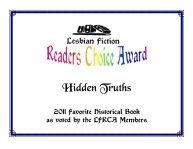 It’s been a while since I updated my blog. My job kept me busy, but today I have some news I want to share with you.
It’s been a while since I updated my blog. My job kept me busy, but today I have some news I want to share with you.
The Lesbian Fiction Readers’ Choice Awards were just announced, and Hidden Truths is one of the winners. I know that most readers say that awards don’t influence their reading choices (I know I’m not actively searching out award-winning books either), but it still feels nice to be recognized by a group of readers who liked my book.
Here’s a complete list of the award winners:
Favorite Lesbian Fiction Writer:
Georgia Beers
R.E. Bradshaw
Denise DeSio
Susan X. Meagher
LL Raand/Radclyffe
Ali Vali
Favorite Lesbian Fiction Anthology/Short Story Collection
The Old Woman and Other Lesbian Stories by Q. Kelly
Women of the Mean Streets: Lesbian Noir – J.M. Redmann/G. Herren (ed.)
Favorite Lesbian Fiction Romance
96 Hours by Georgia Beers
Before it Stains by R.E. Bradshaw
Jericho by Ann McMan
Parties in Congress by Colette Moody
Sheltering Dunes by Radclyffe
Waking up Gray by R.E. Bradshaw
Favorite Lesbian Fiction Mystery
Cool Side of the Pillow by Gill McKnight
Favorite Lesbian Fiction Adventure
Dying to Live by Kim Baldwin & Xenia Alexiou
High Impact by Kim Baldwin
Favorite Lesbian Fiction Speculative Fiction/Sci-Fi/Fantasy
After the Fall by Robin Summers
Blood Hunt by LL Raand
Indigo Moon by Gill McKnight
Nightrise by Nell Stark & Trinity Tam
Scarlet Masquerade by Jett Abbott
Favorite Lesbian Fiction General
96 Hours by Georgia Beers
Before it Stains by R.E. Bradshaw
Hell’s Highway by Gerri Hill
Jericho by Ann McMan
Rose’s Will by Denise DeSio
Favorite Lesbian Fiction Historical
Hidden Truths by Jae
Filed under: Hidden Truths, lesbian fiction, News Tagged: lesbian fiction, readers' choice awards








March 8, 2012
How to improve your writing skills
I recently had several e-mails from readers of my blog asking me ab out ways to improve their writing skills.
out ways to improve their writing skills.
There are a lot of ways to do that.
You could participate in an (online) workshop or writing course. Most of them are conducted via private mailing lists.
Here are links to a few of them:
Margie Lawson's Writers' Academy
Romance Writers of America – chapter courses
You can find more links to online workshop and courses on my website.
You could also read books on writing. There are thousands of them. Here's a link to my list of personal favorites.
Of course, there are also thousands of blogs and websites on writing.
A great way to improve your writing skills is also to work with an editor. It doesn't just improve your current work in progress; it also teaches you things for your next novel or story. Make sure you hire a developmental/content editor, who can give feedback on all aspects of writing, rather than a copy editor, who focuses more on grammar and spelling.
Some editors also offer manuscript evaluations that give you a better idea of the strong and the weak points of your writing.
You could also join a critique group and share your work with the rest of the group, who offers feedback. Here are some links to critique groups.
Beta readers can also do wonders for your writing skills—if you find a good one. What you need is someone who is honest and provides constructive criticism, not a fan club. I often hear writers complain about how difficult it is to find good beta readers. A solution might be to swap stories with another writer—you beta read her story; she beta reads yours. Beta reading someone else's manuscript can also teach you a lot about writing.
Most importantly, the only way to improve your writing is by writing. Try to find time to write regularly. Don't worry about making mistakes. The first draft doesn't need to be perfect. Writing is rewriting, after all.
Filed under: writing tips Tagged: beta reader, critique groups, editor, writing skills, writing workshop








February 5, 2012
GLBT Bookshelf
Have you heard of the GLBT Bookshelf?
The GLBT Bookshelf is a community of writers, readers, publishers, reviewers, and artists, created by author Mel Keegan.
Right now, the emphasis is on gay fiction, but there are also lesbian novels.
It's a Wiki, which means that members can build their own pages, embed sample chapters, link to their websites, blogs, and sales pages, post free stories, and many other things.
There's also a review page. Nan Hawthorne added her growing list of historical fiction reviews.
You can find my profile here.
Filed under: lesbian fiction, News








January 25, 2012
And the winners are…
I just did the drawing for the winners of a free copy of Next of Kin, Conflict of Interest, and Backwards to Oregon.
Actually, this time, I didn't do it the old-fashioned way (putting the names on slips of paper and then drawing three folded notes) but used an online random number generator.
The three people who won one of my books are:
Anh Tran
Peggy Adams
Katherine Standell
Congratulations!
Please contact me at jae_s1978 AT yahoo.de and let me know which book you would prefer (first one to contact me gets to pick first) and where to send it.
Filed under: News








January 19, 2012
Book giveaway
It's time for another book giveaway.
I'm giving away a signed copy of Conflict of Interest, one copy of Backwards to Oregon, and one copy of Next of Kin.
All you need to do to enter the drawing is to leave a comment on my blog, in which tell me your favorite book of 2011 (or several favorites).
Also, I'm looking for a beta reader for my newest novel. It's a contemporary romance with the (working) title Something in the Wine. It has around 70,000 words.
I already have a team of skilled betas, but I would like to have a fresh set of eyes—preferably someone who's a native speaker.
If you'd like to beta-read Something in the Wine, send me an e-mail (jae_s1978@yahoo.de).
Filed under: News








January 8, 2012
Keeping track of writing time
In interviews or when I talk to readers, I often get asked how long it takes me to write a novel. I usually answer things like, "About a year" or "It took eleven months to write Hidden Truths."
But when it comes to actual writing time, I have no clue how many hours it takes to write a novel.
With the start of the new year, I thought that it would be interesting to see how much time a week/month/year I spend writing, so I decided to keep track of my writing time.
To help me do that, I'm using two types of software:
A stopwatch. Here's a simple one online.
And I'm also trying out an automatic time management software called Slife. Slife tracks what applications, documents, and websites you use throughout the day and for how long.
Is anyone else keeping track of writing time? If yes, how do you do it?
And has anyone ever found out how many hours it takes to write a novel?
Filed under: Jae's writing process Tagged: stopwatch, time management for writers, writing time








January 1, 2012
2011 in review
The WordPress.com stats helper monkeys prepared a 2011 annual report for this blog.
Here's an excerpt:
The concert hall at the Syndey Opera House holds 2,700 people. This blog was viewed about 22,000 times in 2011. If it were a concert at Sydney Opera House, it would take about 8 sold-out performances for that many people to see it.
Click here to see the complete report.
Filed under: Uncategorized








December 9, 2011
Holiday Anthology
As a special thanks to our readers, L-Book has put together a free anthology of holiday short stories.
Some of the stories are mini-sequels or prequels to published stories, while others are new stories with new characters.
This year's anthology also includes the stories from last year's holiday anthology — all for free!
There are stories from Fran Heckrotte, RJ Nolan, Rrrose Carbinela, Helen Dunn, phair, Rae D. Magdon, Jeanine Hoffman, Al Hotchkin, and me.
In addition to my two stories from last year, you'll find the brand-new story "The Christmas Grump" in the anthology.
Filed under: L-Book, News Tagged: holiday anthology, L-Book










